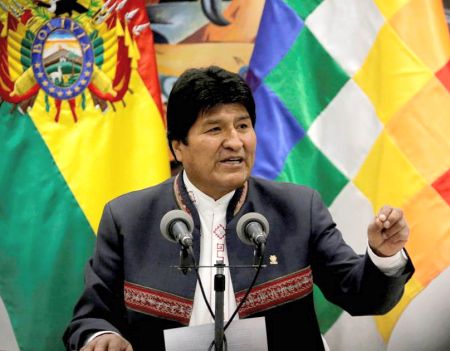RESIGNATION AND EXILE OF THE PRESIDENTEVO MORALES IN BOLIVIA |
|
|
"I'm giving up my position as president," the 60-year-old indigenous leader, who has been in power since 2006, said on television. While the president of Bolivia had just announced the convening of new elections to "pacify the country," he had to deal with the resignations of most ministers, dozens of deputies and senators, before announcing his own. "The course of events runs counter to my personal principles, as well as my spiritual and democratic values, and therefore it prevents me from continuing to head the state portfolio that I run," wrote the Minister of Finance. hydrocarbons, Luis Alberto Sanchez, in a letter sent to the President and published on his Twitter account, The Bolivian army had ordered the head of state to resign, saying that such a decision would help restore calm in the country. "After analyzing the national conflict, we ask the president to give up his presidential term, to allow the restoration of peace and the restoration of stability in the country," the commander of the land forces, Williams, told reporters. Kaliman. The wave of protest that has shaken the country for three weeks has left three dead and 383 injured. Power holiday in Bolivia All other senior political leaders who should have taken over as head of the country also resigned so that on Sunday night, Bolivia was facing a vacancy of power. Evo Morales received the immediate support of the Cuban and Venezuelan presidents, who denounced a "coup d'etat" while expressing their solidarity with their "brother president" Evo Morales. Mexico offered asylum to Evo Morales and hosted Bolivian officials and parliamentarians in his embassy in La Paz . Evo Morales was one of the last representatives of the "pink wave" that swept through the 2000s on Latin America and left to the left Brazil, Argentina, Chile, Ecuador and Venezuela. Most of these countries have since moved back to the right. |
|
| Britney Delsey for DayNewsWorld | |
 |
|




